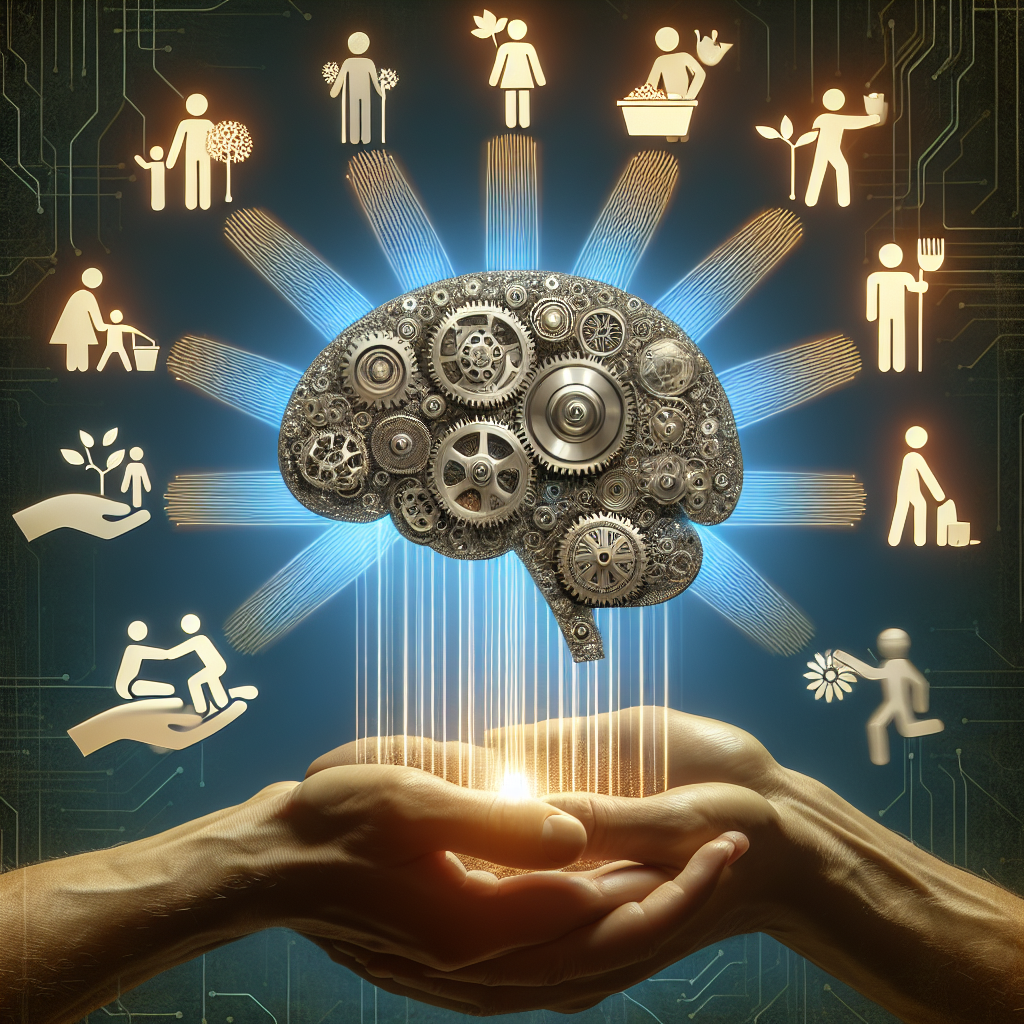Nonprofit organizations rely heavily on volunteers to help fulfill their missions and carry out their programs. Volunteer management and engagement are crucial aspects of running a successful nonprofit, but they can often be challenging and time-consuming tasks. Fortunately, advances in technology, specifically artificial intelligence (AI), are revolutionizing the way nonprofits can manage and engage their volunteers.
AI-powered solutions for nonprofit volunteer management and engagement offer a range of benefits, from streamlining the recruitment and onboarding process to improving communication and tracking volunteer impact. In this article, we will explore the various ways in which AI is being used to support nonprofits in their volunteer management efforts, as well as address some common questions and concerns surrounding these technologies.
Recruitment and Onboarding
One of the most time-consuming aspects of volunteer management is the recruitment and onboarding process. AI-powered solutions can help streamline this process by automating tasks such as posting volunteer opportunities, screening applicants, and scheduling interviews. AI algorithms can analyze volunteer profiles and match them to relevant opportunities based on their skills, interests, and availability, making it easier for nonprofits to find the right volunteers for the job.
Additionally, AI can assist with the onboarding process by providing volunteers with the information they need to get started, such as training materials, orientation videos, and background checks. This can help new volunteers feel more prepared and engaged from the outset, increasing the likelihood that they will continue volunteering with the organization.
Communication and Engagement
Effective communication is key to engaging volunteers and keeping them motivated and informed. AI-powered solutions can help nonprofits improve their communication strategies by providing personalized and timely messages to volunteers. For example, AI chatbots can answer volunteers’ questions, provide updates on upcoming events, and send reminders about their volunteer commitments.
AI can also help nonprofits track volunteer engagement and impact by analyzing data on volunteer activities, hours served, and outcomes achieved. This information can be used to recognize and reward volunteers for their contributions, as well as to identify areas for improvement in volunteer management practices.
Impact Measurement and Reporting
Measuring the impact of volunteer efforts is essential for nonprofits to demonstrate the value of their programs and attract funding and support. AI can help nonprofits track and report on the impact of volunteer activities by analyzing data on key performance indicators, such as the number of volunteers recruited, hours served, and outcomes achieved.
AI-powered solutions can generate reports and dashboards that showcase the impact of volunteer efforts in a visually compelling way, making it easier for nonprofits to communicate their successes to stakeholders and donors. This can help nonprofits build credibility and trust with their supporters, as well as identify opportunities for growth and improvement in their volunteer programs.
Common Questions and Concerns
As with any new technology, there are often questions and concerns surrounding the use of AI-powered solutions for nonprofit volunteer management and engagement. Here are some common FAQs:
Q: Will AI replace human volunteers?
A: No, AI is meant to support and enhance the work of human volunteers, not replace them. AI can automate routine tasks and free up time for volunteers to focus on more meaningful and impactful activities.
Q: Is AI expensive to implement?
A: The cost of implementing AI-powered solutions can vary depending on the size and needs of the nonprofit organization. However, there are a range of affordable and user-friendly AI tools available that can help nonprofits improve their volunteer management practices.
Q: How can nonprofits ensure data privacy and security when using AI?
A: Nonprofits should be transparent about how they collect, store, and use volunteer data when implementing AI-powered solutions. It is important to comply with data protection laws and regulations, such as the General Data Protection Regulation (GDPR), and to prioritize data security and privacy in all aspects of volunteer management.
Q: How can nonprofits ensure that AI is used ethically in volunteer management?
A: Nonprofits should establish clear guidelines and policies for the ethical use of AI in volunteer management, including ensuring that AI algorithms are unbiased and transparent in their decision-making processes. It is important to involve volunteers in the development and implementation of AI-powered solutions to ensure that their rights and interests are protected.
In conclusion, AI-powered solutions offer nonprofit organizations a range of benefits for managing and engaging their volunteers more effectively. From streamlining the recruitment and onboarding process to improving communication and tracking volunteer impact, AI can help nonprofits enhance their volunteer management practices and achieve greater impact in their communities. By addressing common questions and concerns surrounding the use of AI in volunteer management, nonprofits can ensure that they are leveraging these technologies in a responsible and ethical manner.

